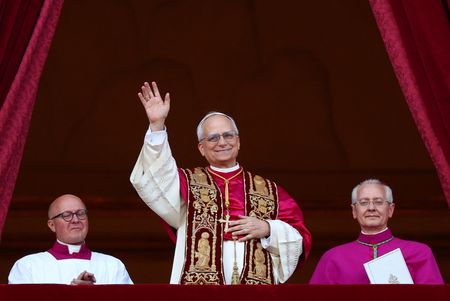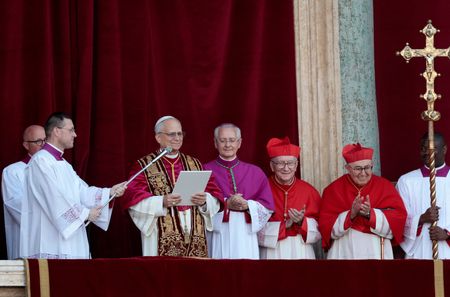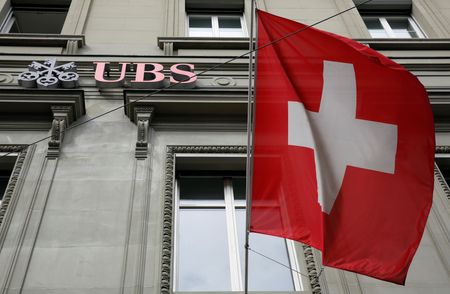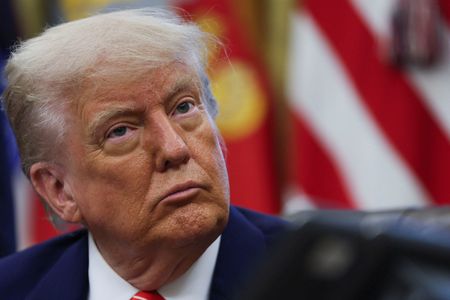By Jeff Mason and Andrea Shalal
WASHINGTON (Reuters) – U.S. Vice President JD Vance on Wednesday said Europe and the United States were “on the same team” but needed a better joint security posture, taking a more conciliatory tone after alarming allies with sharp remarks during a visit to Germany in February.
During an event in Washington sponsored by the Munich Security Conference, Vance reiterated his and President Donald Trump’s belief that Europe needed to take on more responsibility related to defense. Vance said both sides of the Atlantic had become too comfortable with an outdated security system that was not adequate to meet the challenges of the next 20 years.
The vice president has played an attack dog role repeatedly for Trump on foreign policy but stepped back from that approach in his remarks at the conference on Wednesday.
“I do still very much think that the United States and Europe are on the same team,” he said, noting how European and American culture and civilizations were linked.
“It’s completely ridiculous to think that you’re ever going to be able to drive a firm wedge between the United States and Europe. Now that doesn’t mean we’re not going to have disagreements.”
Earlier this year in Munich, Vance accused European leaders of censoring free speech and failing to control immigration, drawing a rebuke from German Defense Minister Boris Pistorius that the U.S. vice president was calling into question democracy in Germany and in Europe as a whole.
Vance last week joined other members of Trump’s circle, including Secretary of State Marco Rubio, in criticizing a move by Germany’s domestic intelligence agency to classify the far-right Alternative for Germany party as an “extremist” group, enabling it to step up monitoring of the biggest opposition party.
But on Wednesday, Vance adopted a less antagonistic tone toward Washington’s long-time ally and NATO partners. He said his February remarks were aimed as much at the administration of former President Joe Biden as they were at European partners.
Wolfgang Ischinger, the former chairman of the Munich Security Conference who now serves as president of the MSC Foundation Council, invited Vance to return to Germany for the group’s main conference again next year.
“I wasn’t sure after February whether I would get the invitation back, but it’s good to know it’s still there,” Vance joked.
“Well, we thought about it,” Ischinger quipped back, to laughter.
The audience, which included diplomats and national security experts, applauded when Vance got up to leave. They had not done so when he came on stage.
Vance addressed a handful of foreign policy topics during his question and answer session with Ischinger, a former ambassador.
More than 100 days into Trump’s administration, Vance said he was not pessimistic about the chances of ending Russia’s war with Ukraine. He has previously threatened that the United States would walk away from negotiations if the two sides did not show progress.
He said Washington would not be able to mediate an end to the war without direct talks between the two sides and urged Russia and Ukraine to agree on some guidelines to make that happen.
“Right now the Russians are asking for a certain set of requirements, a certain set of concessions in order to end the conflict. We think they’re asking for too much,” said Vance, who has previously taken a hard line on Ukraine.
Vance urged the European Union to lower its tariffs and regulatory barriers, a major grievance for Trump that has fueled his determination to install reciprocal tariffs.
He also spoke positively about U.S. talks with Iran over its nuclear program, saying there was a deal to be made that wouldreintegrate Iran into the global economy while preventing itfrom getting a nuclear weapon.
“So far, so good,” he said. “We’ve been very happy by how the Iranians have responded to some of the points that we’ve made.”
During his first term, Trump withdrew the U.S. from a 2015 nuclear deal with Iran that had been negotiated by European and other world powers.
(Reporting by Jeff Mason and Andrea Shalal; additional reporting by Katharine Jackson; Editing by Colleen Jenkins and Deepa Babington)











